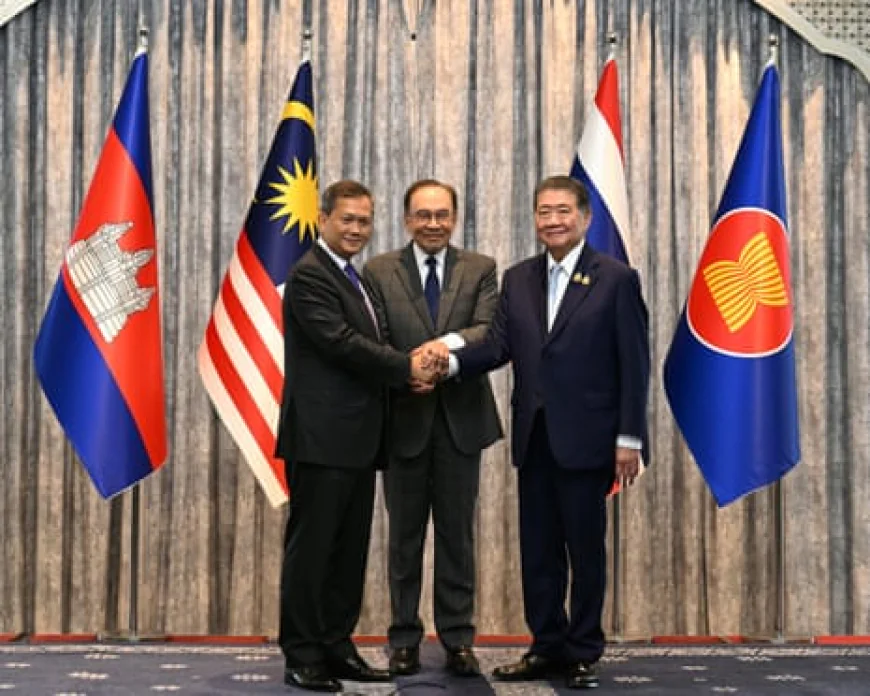Thailand and Cambodia Agree to Immediate Ceasefire After Deadly Border Clashes

Thailand and Cambodia have reached an agreement on an "immediate and unconditional ceasefire" following five days of intense border clashes that claimed at least 33 lives and displaced tens of thousands.
“This marks an essential step toward de-escalation and the restoration of peace and stability,” Malaysian Prime Minister Anwar Ibrahim announced during a press conference in Kuala Lumpur, alongside his Thai and Cambodian counterparts. He confirmed the ceasefire would take effect at midnight.
Initially, Thailand rejected Malaysia’s mediation offer, but later agreed after U.S. President Donald Trump warned that trade negotiations with Washington would be suspended until the violence stopped.
The century-old territorial dispute flared up in May after a Cambodian soldier was killed during a skirmish. Tensions escalated further when a Thai soldier lost his leg in a landmine blast, prompting Thailand to shut several border crossings, expel Cambodia’s ambassador, and recall its own.
Both nations imposed restrictions: Thailand limited travel into Cambodia, while Cambodia banned key Thai imports including fruit, electricity, and internet services. Local Cambodian media reported that hundreds of thousands of migrant workers had returned home from Thailand since the tensions began.
Last week, both sides exchanged gunfire, with each accusing the other of starting the conflict. Thai military officials reported that many of their casualties were civilians struck by rocket fire in border villages. Cambodia confirmed at least 13 deaths on its side, including eight civilians.
Despite ongoing shelling during Monday’s peace talks, Anwar said Malaysia and other ASEAN nations would help monitor the ceasefire’s implementation. Both countries are expected to withdraw heavily reinforced troops from the border and agree to international monitoring to prevent future clashes.
Cambodian Prime Minister Hun Manet called the meeting “very productive” and expressed hope that the ceasefire would hold. He said Cambodia had been advocating for a halt to the fighting since Friday, as its military faced increasing pressure from Thai forces.
Acting Thai Prime Minister Phumtham Wechayachai gave a brief statement, pledging to uphold the ceasefire agreement.


